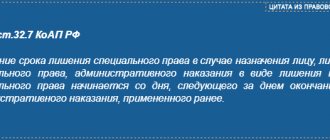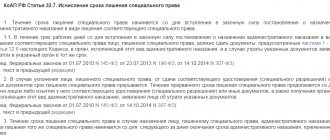Reconciliation with the victim in criminal cases of road accidents: defense options
In many cases, when the guilt of the defendant in criminal cases of road accidents is obvious, it is advisable for the defense to set a course for reconciliation with the victims from the very beginning. The advantages of such a decision for the defendant are obvious: reconciliation with the victim does not imply the imposition of punishment and does not even entail a criminal record. At the same time, victims in such cases actually receive compensation that suits them, which, unfortunately, is not always possible to achieve in the event of a court conviction and satisfaction of a civil claim.
And if in cases of road accidents, where there are no dead, but only victims (Part 1 of Article 264 of the Criminal Code of the Russian Federation), lawyers quite often strive to terminate the criminal case on the grounds in question, then in more serious cases this opportunity is often not even considered and is unreasonably missed, which seems fundamentally wrong. At the same time, as practice shows, even in the most difficult cases, the possibility of reconciliation with the victim deserves more careful consideration.
Is it always possible to dismiss a case due to reconciliation with the victim?
From a formal point of view, reconciliation with the victim is possible under all, without exception, elements of Article 264 of the Criminal Code of the Russian Federation, because all of them are crimes of carelessness, which means, according to Part 3 of Article 15 of the Criminal Code of the Russian Federation, they relate to crimes of minor (Part 1) and medium (Part with 2 to 6) gravity. This is also true in cases where people died as a result of an accident, or if the perpetrator of the accident was under the influence of alcohol and (or) drugs: there are no formal obstacles to terminating the criminal case in connection with reconciliation with the victim.
Thus, the fact that the death of a victim in an accident is not an obstacle to reconciliation with the victim was directly indicated by the Plenum of the Supreme Court of the Russian Federation in Resolution No. 19 of June 27, 2013, since, in accordance with Part 8 of Article 42 of the Code of Criminal Procedure of the Russian Federation, the rights of the victim in such cases go to one of the close relatives of the deceased, and the criminal procedural law does not contain any restrictions on the procedural rights of persons recognized as victims in the manner established by part 8 of Article 42 of the Code of Criminal Procedure of the Russian Federation. Numerous examples of the termination of criminal cases of road accidents with fatalities confirm that the courts are ready to apply this clarification in practice (see the Appeal Resolution of the Investigative Committee on criminal cases of the Supreme Court of the Republic of Crimea No. 1-130/2018 22-1070/2018 dated May 8, 2021 to case No. 1-130/2018 under Part 3 of Article 264 of the Criminal Code of the Russian Federation, Resolution of the Novosergievsky District Court of the Orenburg Region No. 1-140/2017 dated December 29, 2021 in case No. 1-140/2017 under Part 3 of Article 264 of the Criminal Code of the Russian Federation).
Reconciliation is possible even in cases of road accidents committed while intoxicated, or resulting in the death of several people.
Contrary to popular belief, the fact that the culprit is intoxicated is not in itself an obstacle to the termination of a criminal case, and there are examples of this. Thus, by Resolution of the Oktyabrsky City Court of the Republic of Bashkortostan No. 1-169/2013 dated May 22, 2013, the criminal case under Part 2 of Article 264 of the Criminal Code of the Russian Federation was terminated in connection with reconciliation with the victim. The Volzhsky District Court of the Samara Region (Resolution No. 1-235/2013 of October 15, 2013), and the Prikubansky District Court of Krasnodar (Resolution No. 1-486/2018 of May 30, 2018) acted in a similar manner. In all of the above cases, the courts also considered cases under Part 2 of Article 264 of the Criminal Code of the Russian Federation. Sometimes the courts found it possible to terminate a criminal case even in cases where a “drunk” road accident resulted in the death of the victim (see Resolution of the Pushkin City Court of the Moscow Region No. 1-109/2018 dated February 16, 2021 in case No. 1-109/2018 in part 4 of Article 264 of the Criminal Code of the Russian Federation, Resolution of the Ordzhonikidze District Court of the city of Novokuznetsk, Kemerovo Region No. 1-70/2018 dated February 20, 2021 in case No. 1-70/2018 under Part 4 of Article 264 of the Criminal Code of the Russian Federation).
The reasons why courts sometimes dismiss cases based on elements with the qualifying sign of committing a crime while intoxicated are quite simple and boil down to the fact that neither the criminal nor the criminal procedural law directly prohibits the termination of such criminal cases in connection with reconciliation with the victim. This means that committing an accident while intoxicated is not an insurmountable obstacle in the presence of the entire set of legal facts provided for in Article 76 of the Criminal Code of the Russian Federation. A striking example is a criminal case considered on appeal by the Krasnodar Regional Court. In canceling the verdict of the trial court under Part 4 of Article 264 of the Criminal Code of the Russian Federation, the appellate court referred to the existence of general grounds for termination of a criminal case provided for in Articles 76 of the Criminal Code of the Russian Federation, 25 of the Criminal Procedure Code of the Russian Federation, and actually ignored the state of intoxication of the defendant as a circumstance that does not exist in this case legal significance (see Appeal decision No. 22-3618/2018 of June 28, 2021 in case No. 22-3618/2018).
There have been cases of termination due to reconciliation with the victim of a criminal case under Part 5 of Article 264 of the Criminal Code of the Russian Federation (Resolution of the Nevsky District Court of St. Petersburg No. 1-395/2018 of February 14, 2018 in case No. 1-395/2018, Appeal Resolution of the Primorsky Regional Court No. 22-2282/2018 of May 7, 2021 in case No. 22-2282/2018).
The appeal ruling in the second of the above-mentioned cases is very interesting and detailed. In this case, the court of first instance refused to dismiss the criminal case in connection with reconciliation with the victim, citing the fact that “... that the actions of the defendant... affect not only the interests of the victims in this case, but also the interests of society and the state.” In overturning the verdict, the Primorsky Regional Court pointed out the following:
“When making a decision to terminate a criminal case in connection with the reconciliation of the person who committed the crime with the victim, the court must comprehensively examine the nature and degree of public danger of the crime, information about the personality of the defendant, other circumstances of the case (whether the person is recognized as a victim, his financial situation, whether pressure was exerted on the victim for the purpose of reconciliation, what actions were taken by the perpetrator in order to make amends for the harm caused by the crime, etc.).
According to the legal position formulated in the Resolution of the Plenum of the Supreme Court of the Russian Federation dated June 27, 2013 No. 19 “On the application by courts of legislation regulating the grounds and procedure for exemption from criminal liability”, in accordance with Art. 76 of the Criminal Code of the Russian Federation, exemption from criminal liability in connection with reconciliation with the victim is possible if two conditions are met: reconciliation of the person who committed the crime with the victim and making amends for the harm caused to him. When resolving the issue of exemption from criminal liability, courts should also take into account the specific circumstances of the criminal case, including the characteristics and number of objects of criminal assault, their priority, the presence of the freely expressed will of the victim, the change in the degree of public danger of the person who committed the crime, after making amends for the harm and reconciliation with the victim , the identity of the person who committed the crime, circumstances mitigating and aggravating the punishment.
Under such circumstances, the reasons given by the court of first instance in support of the refusal to satisfy the request of the defender of the defendant FULL NAME1 to dismiss the case do not correspond not only to the requirements of the above-mentioned norms of law and the legal positions formulated by the Supreme Court of the Russian Federation in the above-mentioned Resolutions, but also contradict the provisions of other interrelated rules with them, including the basic principles of criminal proceedings, in particular, the principle of fairness, and therefore this Resolution does not comply with the requirements of Part 4 of Art. 7 of the Code of Criminal Procedure of the Russian Federation in the light of its legality, validity and motivation.”
This argumentation can be used by the defense in other cases, since prosecutors quite often refer to public interests, motivating their disagreement with the termination of a criminal case on the grounds provided for in Articles 76 of the Criminal Code of the Russian Federation, 25 of the Criminal Procedure Code of the Russian Federation.
Finally, despite the fact that this seems incredible, there have been cases of termination of a criminal case on this basis under Part 6 of Article 264 of the Criminal Code of the Russian Federation (violation of traffic rules, resulting in the death of two or more persons, committed while intoxicated), although such decisions are more likely exception rather than the rule (examples of dismissed cases under Part 6 of Article 264 of the Criminal Code of the Russian Federation: Resolution No. 1-118/2013 of the Biysk District Court of the Altai Territory of September 23, 2013, Resolution of the Artemovsk City Court of the Sverdlovsk Region No. 1-59/2013 of July 24 2013 in case No. 1-59/2013). In itself, the content of these decisions is extremely formal, and does not give a sufficiently complete picture of the circumstances that formed the judge’s internal conviction about the admissibility of dismissing the case in such a difficult case in connection with reconciliation with the victims; however, the very fact of the existence of such decisions (even as a exceptions) suggests that even in the most difficult situation there is hope for reconciliation and closure of the case. Based on the foregoing, it should be recognized that a lawyer, taking up the defense in a criminal case under Article 264 of the Criminal Code of the Russian Federation, where the defendant’s guilt is obvious, must necessarily discuss with the client the possibility of compensating the victims for harm and filing a petition to terminate the criminal case on the grounds provided for Articles 76 of the Criminal Code of the Russian Federation and 25 of the Code of Criminal Procedure of the Russian Federation. This must be done even in the most difficult cases, because there is a real opportunity to help the defendant, as well as to mitigate as much as possible the negative consequences of the act he committed.
What if the court refuses to dismiss the case?
The refusal of the court to satisfy the petition to terminate the criminal case, unfortunately, is quite probable, because to terminate the case or not in connection with reconciliation with the victim is the right, and not the obligation of the court, and the presence of the entire set of formal grounds for termination of the criminal case, provided for in Articles 76 Criminal Code of the Russian Federation and 25 Criminal Procedure Code of the Russian Federation. Of course, the severity of the consequences of an accident, the fact that the accident was committed while intoxicated, increases the likelihood of a negative outcome for the defense: if under parts 1 and 2 of Article 264 of the Criminal Code of the Russian Federation the probability of satisfying the petition and terminating the criminal case in connection with reconciliation with the victim is as high as possible, then under part 6 Article 264 of the Criminal Code of the Russian Federation, it tends to zero. However, in this case, firstly, there is still a possibility of termination of the case, and, secondly, it is necessary to remember the following important circumstance.
The fact is that paragraph “k” of Part 1 of Article 61 of the Criminal Code of the Russian Federation provides, as a mitigating circumstance, “providing medical and other assistance to the victim immediately after the commission of a crime, voluntary compensation for property damage and moral harm caused as a result of the crime, other actions aimed to make amends for the harm caused to the victim.”
In the event of a refusal to reconcile the parties, the court will not be able to completely ignore the fact that the harm to the victim has been compensated for by the victim reconciliation has been achieved. This means that the defense is obliged to ask the court to recognize the presence of a mitigating circumstance provided for in paragraph “k” of Part 1 of Article 61 of the Criminal Code of the Russian Federation, the chances of which are quite high.
For the defense, this mitigating circumstance is very important, since it entails additional relief for the defendant. According to Part 1 of Article 62 of the Criminal Code of the Russian Federation, “In the presence of mitigating circumstances provided for in paragraphs “and” and (or) “k” of Part One of Article 61 of this Code, and in the absence of aggravating circumstances, the term or amount of punishment cannot exceed two-thirds of the maximum term or amount the most severe type of punishment provided for by the relevant article of the Special Part of this Code”[1].
In combination with the benefit established by part 5 of Article 62 of the Criminal Code of the Russian Federation for the use of a special procedure provided for by Chapter 40 of the Code of Criminal Procedure of the Russian Federation, and taking into account the explanations of paragraph 14 of the Resolution of the Plenum of the Supreme Court of the Russian Federation dated December 5, 2006 N 60, on the possibility of simultaneous application of benefits “for special order" (Part 5 of Article 62 of the Criminal Code of the Russian Federation) and "for compensation for harm" (Part 1 of Article 62 of the Criminal Code of the Russian Federation), this mitigating circumstance allows one to radically reduce the maximum possible punishment (two-thirds of two-thirds of the maximum punishment)[2].
It seems an error to ask to recognize as a mitigating circumstance the very fact of reconciliation with victims, which is not directly classified as such in the Criminal Code of the Russian Federation, and which (most importantly) does not directly entail any specific benefits if recognized as a mitigating circumstance when imposing a punishment. Instead, it seems more correct to focus attention specifically on the defendant’s full and voluntary compensation for harm with reference to paragraph “k” of Article 61 of the Criminal Code of the Russian Federation. The following case can be cited as an example. Considering the appeals of the victims and the defense against the verdict under Part 5 of Article 264 of the Criminal Code of the Russian Federation, where the defendant was sentenced to three years of imprisonment in a settlement colony with deprivation of the right to drive vehicles for two years, the appellate court upheld the verdict without changing O. True, it should be noted that at the same time, the courts of the first and appellate instances still took into account compensation for harm as a mitigating circumstance, although without reference to paragraph “k” of Part 1 of Article 61 of the Criminal Code of the Russian Federation, and the imposed punishment was actually within the reasonable limits above “two thirds of two thirds”, again, without any justification and reference to paragraph 1 of Article 62 of the Criminal Code of the Russian Federation (Appeal Resolution of the Pacific Fleet Military Court No. 22-211/2015 22-7/2016 dated January 26, 2021 in case No. 22-211/2015).
In addition, the presence of grounds for termination of a criminal case in connection with reconciliation of the parties gives the defense the opportunity, in the event of the court’s refusal to reconcile, to ask for additional relief, such as imposing a more lenient punishment than provided for this crime (Article 64 of the Criminal Code of the Russian Federation). For defendants (especially professional drivers), in this case, it may be valuable to not impose an additional punishment provided for as mandatory (Part 1 of Article 64 of the Criminal Code of the Russian Federation), since Article 264 of the Criminal Code of the Russian Federation provides for deprivation of the right to drive a vehicle for long periods. .
A striking example of the implementation of this position in practice is the criminal case considered by the Petrovsky District Court of the Stavropol Territory. The defendant was accused of committing a crime under Part 3 of Article 264 of the Criminal Code of the Russian Federation: as a result of an accident, one person died and another was seriously injured. The defendant paid compensation to the victims, as a result of which the victims petitioned the court to terminate the criminal case on the grounds provided for in Articles 76 of the Criminal Code of the Russian Federation and 25 of the Criminal Procedure Code of the Russian Federation. The court refused to dismiss the criminal case; however, when imposing punishment, the court took into account voluntary compensation for property damage and moral harm caused as a result of the crime, and recognized this as a mitigating circumstance provided for in paragraph “k” of Part 1 of Article 61 of the Criminal Code of the Russian Federation. The court also applied paragraphs 1 and 5 of Article 62 of the Criminal Code of the Russian Federation discussed above and imposed a sentence of 2 years in prison using Article 73 of the Criminal Code of the Russian Federation, establishing a probationary period of 2 years, and obliging the defendant only not to change his place of residence without notifying the penal inspection. Also in this case, the court applied the provisions of Article 64 of the Criminal Code of the Russian Federation and decided not to impose an additional punishment on the defendant in the form of deprivation of the right to drive a vehicle (Sentence of the Petrovsky District Court of the Stavropol Territory of March 21, 2018 in case No. 1-41/2018)
Conclusion.
So, reconciliation with the victim and termination of the criminal case on the grounds provided for in Articles 76 of the Criminal Code of the Russian Federation and 25 of the Criminal Procedure Code of the Russian Federation is one of the most favorable opportunities for defense in cases of road accidents with grave consequences. Even road accidents committed while intoxicated, or resulting in the death of several persons, do not exclude the possibility of reconciliation and termination of the criminal case, although, of course, the more serious the crime, the less likely it is that the court will consider it possible to terminate the case.
The refusal of the court to terminate a criminal case for reasons related to the internal conviction of the judge, in cases where all the formal grounds for termination of the case in accordance with Articles 76 of the Criminal Code of the Russian Federation, Article 25 of the Criminal Code of the Russian Federation are available, although this is an unfavorable scenario for the development of events, therefore however, it allows the defense to achieve significant relief when imposing punishment by using the provisions “k” of Part 1 of Article 61 of the Criminal Code of the Russian Federation, Part 1 of Article 62 of the Criminal Code of the Russian Federation (benefits for voluntary compensation for harm) in conjunction with Part 5 of Article 62 of the Criminal Code of the Russian Federation (benefits for special the procedure provided for by Chapter 40 of the Code of Criminal Procedure of the Russian Federation), including asking to impose a more lenient punishment than provided for this crime, or not to impose an additional type of punishment - deprivation of the right to drive a vehicle (Article 64 of the Criminal Code of the Russian Federation).
Ignoring this possible position by the defense, and even more so, the lawyer’s failure to explain to his client the possibility of reconciliation, seems to be a fatal mistake. At the same time, there is no justification for the fact that reconciliation with victims (especially in the case of the death of victims) is sometimes extremely costly in material terms. After all, only the principal can decide whether he is able to bear such expenses or not[3]. Being unaware of the very possibility of terminating the criminal case in connection with reconciliation with the victim, he is deprived of such a choice.
[1] As we remember, “... set out in Part 1 of Article 62 of the Criminal Code of the Russian Federation, can be applied by the courts in the presence of at least one of the mitigating circumstances listed in paragraphs “and” and (or) “k” of Part 1 of Article 61 of the Criminal Code of the Russian Federation, if in this case, there are no aggravating circumstances” (Resolution of the Plenum of the Supreme Court of the Russian Federation dated December 22, 2015 N 58, paragraph 36).
[2] It is taken for granted that in cases where a course of reconciliation is taken, the defense will file a motion to consider the case in accordance with Chapter 40 of the Code of Criminal Procedure of the Russian Federation.
[3] Practice shows that in most cases the necessary capabilities are found one way or another.
What is meant by grievous harm?
Before opening a criminal case for an accident on the basis of causing damage in the form of serious injuries, it will be necessary to interpret the degree of harm received in the road accident. If the injuries are not considered serious enough, only administrative penalties will follow.
In a broad sense, a severe degree of harm implies the presence of injuries that pose a threat to human life and require long-term treatment with the issuance of a certificate of incapacity for work. In extreme cases, operations may be necessary, as well as other measures aimed at the recovery and subsequent rehabilitation of the injured person.
If we consider in a little more detail, the following types of injuries are usually classified as serious injuries:
- partial or complete facial disfigurement that cannot be restored;
- complete loss of the ability to hear or see;
- loss of any organ or part thereof;
- the occurrence of speech defects or complete loss of the ability to speak;
- intracranial injuries;
- damage to internal organs;
- wounds of the pelvis, sternum, abdomen, classified as penetrating;
- large volume of blood loss;
- fractures in the plural;
- spinal injuries;
- severe burns;
- termination of pregnancy due to injuries received in an accident;
- condition interpreted as category 3 or 4 shock;
- mental disorders.
In this case, injuries characterized as severe may cause harm that cannot be permanently eliminated. Simply put, the victim will not recover from his injuries, as a result of which he will lose the opportunity to work and generally live a normal life.
A fatal outcome is also classified as serious harm; more precisely, it is the most extreme case, which is the result of a road accident. However, in order to prove that there is a connection between death and the injuries sustained in the accident, the opinion of qualified experts will be required.
Liability for causing moderate harm to health in an accident
The driver is subject to legal punishment for any violation of traffic rules, even when there is no harm to the lives of the victims.
If a participant or several participants received moderate injuries, then the culprit will face administrative liability and compensation for harm.
The sentence is set by the judge, and the behavior of the culprit during the traffic accident, as well as during the investigation of the case, is of enormous importance.
Federal Law No. 142 states that if, as a result of an accident, harm was caused to people’s health, then a decision on compensation for the consequences is made in the judicial regime.
The amount of payment is determined individually, taking into account the guilt of the offender, circumstances in the form of material wealth, and the presence of minor children.
Much depends on the behavior of the injured party; if he treats the situation categorically, while the car lawyer insists on harsh penalties for the culprit of the accident, then this may affect the court decision.










